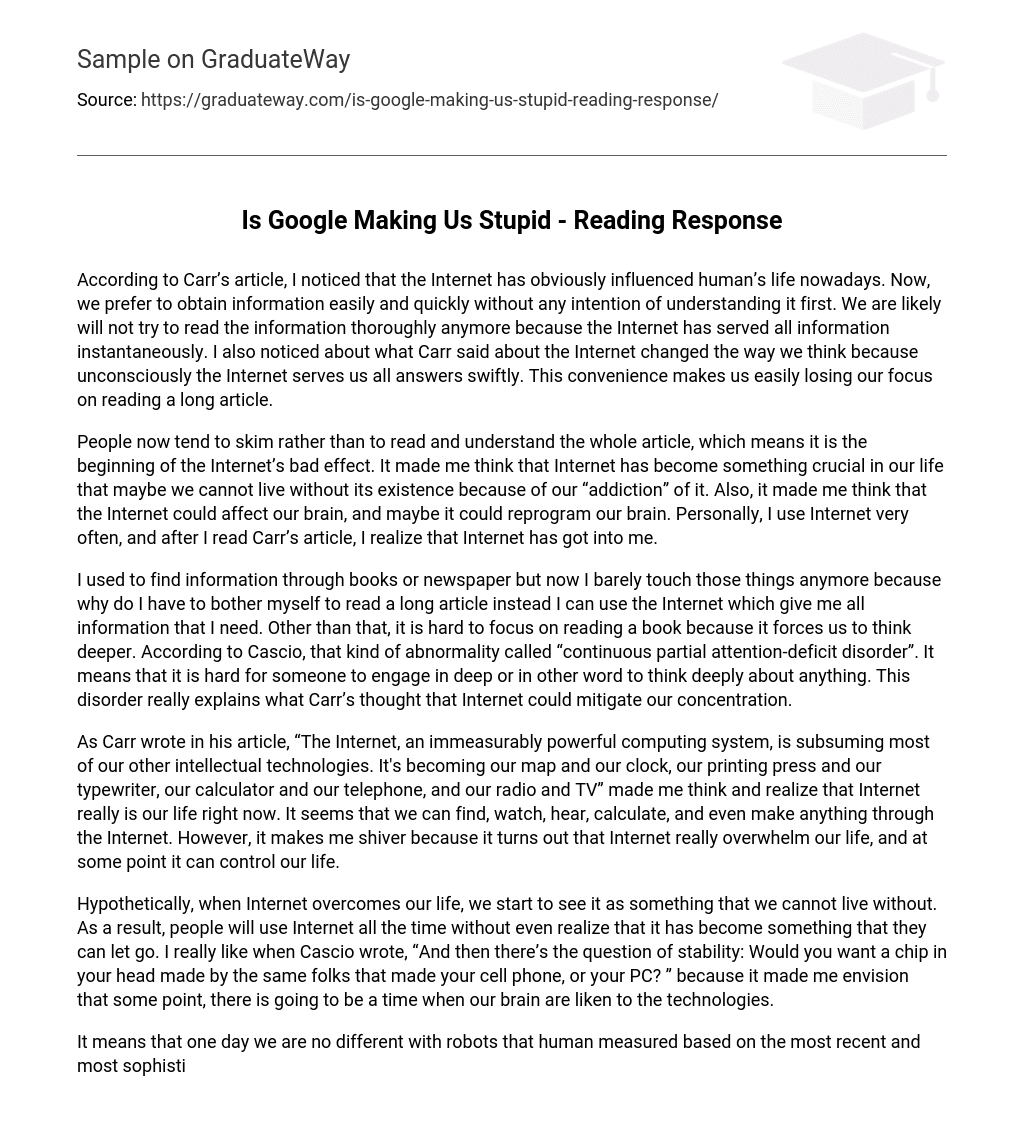Carr’s article discusses how the Internet has greatly influenced modern life. Today, people value quick and easy access to information more than understanding it deeply. This is mainly because the Internet can instantly give us complete answers. As a result, we tend to skim through information instead of reading long articles carefully. Additionally, the Internet’s ability to quickly provide all the answers we need affects our thinking process and makes us easily lose focus while reading.
People nowadays have developed a habit of skimming rather than fully reading and comprehending articles. This phenomenon highlights the negative impact of the internet. It led me to contemplate the significance of the internet in our lives, to the point where we may be unable to imagine living without it due to our excessive dependency. Additionally, it made me ponder whether the internet has the potential to alter our brain functioning and possibly even reprogram it. Personally, I frequently utilize the internet, and upon reading Carr’s article, I came to acknowledge its profound influence on me.
Previously, I would acquire information from books or newspapers. However, nowadays, I rarely utilize those mediums as the Internet provides me with all the necessary information. Additionally, reading lengthy articles can be cumbersome, whereas the Internet offers convenience. Moreover, it becomes difficult to concentrate on reading a book as it requires deep thinking. Cascio refers to this as “continuous partial attention-deficit disorder,” which impedes individuals from engaging in profound thought. This disorder supports Carr’s belief that the Internet diminishes our ability to focus.
In his work, Carr argues that the Internet has become a dominant force in numerous intellectual technologies such as our map, clock, printing press, typewriter, calculator, telephone, radio and TV. This demonstrates its significant role in our daily lives by facilitating information search, media consumption and task completion. Nevertheless, this pervasive influence of the Internet also sparks worries about its potential control over our existence.
If the Internet becomes essential in our lives, it would be unimaginable to live without it. People would continuously use the Internet without realizing its indispensability. I particularly appreciate Cascio’s remark on stability: “And then there’s the question of stability: Would you want a chip in your head made by the same folks that made your cell phone, or your PC?” This comment makes me envision a future where our minds are interconnected with technology.
The text emphasizes the possibility of humans becoming indistinguishable from robots due to advancements in technology. It highlights the importance for us as human beings to value our intellectual capabilities over relying too heavily on technology. This raises a question: What would happen if we reach a stage where we cannot think or carry out basic tasks without technological assistance? How would this affect the world?





